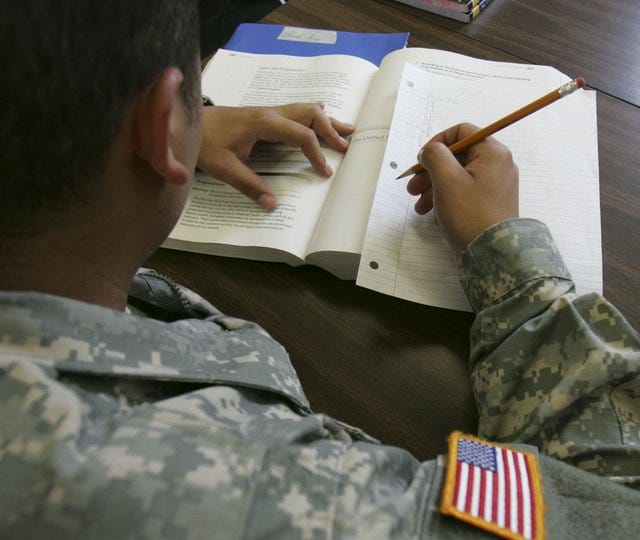Lying to Ourselves: The Demise of Military Integrity
Jared Sperli stashed this in war
Source: http://warontherocks.com/2015/03/lying-t...
t the tactical level, Wong and Gerras show that some Army officers fail to accurately report engagements or to request permission for indirect fire, because they see the reporting process as too demanding. Over time, such seemingly innocuous deceptions cause the higher headquarters receiving these reports to consistently undercount violence and overestimate success – thus distorting the entire picture of how the war is unfolding. Moreover, subsequently arriving replacement units will be less prepared to deal with the more deadly realties of the battlefield they will actually inherit when their combat rotation begins. The painted picture will always be far rosier than underreported local reality.
At the operational level, ethical erosion compounded by massive reporting requirements undermines the Army’s concept of Mission Command. Mission Command is the way the Army fights: it espouses decentralized command and control and places great authority and trust in the hands of junior leaders. The profusion of reporting requirements demanded of these same leaders, and the tacit acceptance by senior leaders that reports will be false or inaccurate, undermines the very foundation of trust upon which Mission Command is built. Within the Army, this may be the most dangerous consequence of this silent ethical breakdown – that trust is dissolved between leaders and led, between seniors and subordinates. Such evident hypocrisy among seniors can all too easily drive cynicism to replace critical trust, especially among junior officers. A schism between senior and junior officers rooted in this hypocrisy – where, as one junior officer told us, “the audio and the video of senior leaders don’t match” – will drive leaders of integrity out of the force and may ultimately cause others outside and inside the Army to lose faith in the fundamental integrity of the institution.
But it is at the strategic level where the effects of this erosion of military ethics may be the most dangerous. To take one important example, Wong and Gerras were frequently told that the readiness assessments of partner forces in Iraq and Afghanistan were an example of ethical deception. These critically important assessments rated the ability of Iraqi and Afghan forces to fight on their own, without U.S. assistance. Yet these ratings usually depended more on the U.S. rotational unit deployment cycle than on the actual capabilities of those partner forces. In other words, partner units received low ratings when a new U.S. unit arrived, better ratings over time, and high ratings right before that unit left – only to plummet once again when a new unit arrived. This rollercoaster annual cycle would almost seem comical were it not for the fact that U.S. strategy in both Iraq and Afghanistan rested heavily on turning over the battlefield to these very same local national forces. This means that senior U.S. military and civilian decision-makers relied on fundamentally flawed data when assessing the progress towards this critical strategic objective. Thus, their decisions about whether the war should continue or end and at what pace U.S. and allied forces should withdraw were deeply distorted.
Stashed in: Pants on fire!, war











9:45 PM Mar 10 2015